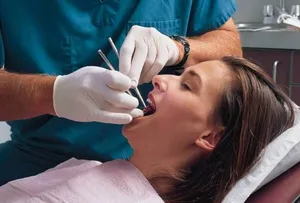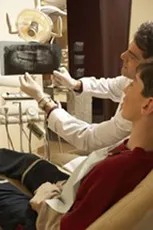How much is the cost of wisdom teeth removal?

As of 2023, our costs range from $350 to $750 per tooth for surgical wisdom teeth removal . This includes the cost of local anesthesia and following visits. On average, for an easy case the patient can expect to spend starting at $1,800 for four wisdom teeth removal. The cost depends on the nature of surgical extraction. Intravenous (IV) sedation is available with any single tooth and multiple wisdom teeth removals.
Many dental insurance companies cover part or all of the cost of wisdom teeth removal. The average insurance cover about $1,700 for the cost of wisdom teeth removal. If you are without insurance (no insurance) we have payment plans available that should work within your budget.
Unlike the average wisdom teeth removal clinician in the dental industry, we have pioneered wisdom teeth removal with advanced minimal invasive laser techniques in certain clinical cases. We specialize in anxiety-free visits with twilight sedation and general anesthesia. Sleep through your wisdom teeth removal appointment. We take all major dental insurance and offer payment plan options for your convenience.
Wisdom teeth are the third and final set of molars that erupt in the back corners of the upper and lower normal adult mouth. Unfortunately, most people experience problems with wisdom teeth; in most cases, this is because the teeth erupt too close to existing permanent teeth, causing crowding, improper bites, and other problems.
Experiencing life from having wisdom issues is emotionally exhausting for many patients. When we met our patients in real life, we ask questions to get to know them better. We listen to their past dental work near wisdom teeth, previous dental experience, and beliefs. We try to unearth their dental and life story and tell our own as clinicians. The end goal is to find out if we can bring these patients back to good oral health by removing their wisdom teeth in an anxiety-free fashion under sedation.
In this process of knowing each other during 1-hour consultation, we tap into the underlying reason patients lack the room for their wisdom teeth and why they have decided to come to see us– to get to be the best version of themselves.
How to know when to remove wisdom teeth
Removal of wisdom teeth is important when the teeth have no room in the mouth to grow. The following symptoms may indicate that the wisdom teeth have erupted and surfaced, and should be removed before they become impacted. However, symptoms may differ from one another and they include:
When to consider removing wisdom teeth?
| in the mouth due to pain |
| Wisdom teeth push other teeth to make room |
| swelling of the face or cheek |
| swelling of the gumline in the back of the mouth |
Most dentists will recommend immediate removal of the wisdom tooth, as early removal to avoid problems, such as an impacted tooth that destroys the second molar. According to the American Academy of General Dentistry, third molar impaction is the most prevalent medical developmental disorder.
When is wisdom teeth removal indicated?
The process of Wisdom tooth extraction or removal is simple and widespread. The gravity of the procedure depends on the number of teeth that are being removed. The duration of the procedure generally lasts a couple of hours. It begins with local anesthesia being injected into the affected area which makes the place numb and the patients are spared the sensation of pain. Then the trained dentist removes the bones and gum covering the tooth. After the tooth is removed stitches are required to close the wounds. The number of stitches required varies from person to person. The recovery time is a couple of days after the surgery.
Why do wisdom teeth sometimes require removal?
If wisdom teeth are causing a problem, this could mean that they are impacted. Impacted wisdom teeth can be extremely painful, as well as harmful to your oral health. Symptoms are easy to spot: pain, inflammation, and some kinds of infections. Many people need to have their wisdom teeth extracted to avoid future serious problems. In general, the lack of the four wisdom teeth does not hamper one's ability to properly bite down, speak or eat.
Risks associated with wisdom tooth removal
- Pain (Intravenous IV sedation available)
- Bleeding
- Swelling
- Lower lip insensitivity
- Persistent sinus opening
- Temporary or permanent numbness
- Cost of extraction
What Are Wisdom Teeth Removal Complications [photo]

Two of the most significant complications include:
Paresthesia, also known as nerve damage: Is a less frequently occurring complication. Wisdom teeth entrapped in the jawbone are sometimes close to nerves. These nerves can be bruised or damaged during the tooth removal process. The result is a numbness (called a paresthesia) of the tongue, lip, or chin that can last a few days, weeks, months, or may even be permanent.
Dry socket: It is a complication of wound healing following the extraction of a tooth. It occurs when either a blood clot has failed to form in the extracted tooth socket or else the blood clot that did form has been dislodged. If clotting doesn't occur, healing will be delayed. When it happens, a dry socket typically occurs 3 or 4 days after the extraction and is accompanied by pain (ranging from "dull" to moderate to severe) and a foul mouth odor. It will heal and recover with time but your dentist can surely help you out. These usually consist of rinsing the inflamed socket gently followed by placing some type of sedative dressing, which soothes the inflamed bone for some time and promotes healing.
Twilight sedation for wisdom teeth removal
We specialize in intravenous (IV) conscious sedation or dental intravenous anesthesia or to some, it is referred to as "Twilight Sedation" for their dental treatment. Intravenous Conscious Sedation or "twilight sleep" helps you to be comfortable and calm when undergoing dental procedures. Your treatment can be completed under intravenous conscious sedation. Intravenous conscious sedation or "IV sedation” (twilight sedation) is designed to better enable you to undergo your dental surgical procedures while you are sedated; it will enable you to tolerate as well as not remember those procedures that may be very uncomfortable for you. The IV sedation will essentially help alleviate the anxiety associated with your treatment. You may not be asleep but you will be comfortable, calm, and relaxed.
Wisdom teeth removal with IV sedation

A thin needle will be introduced into a vein in your arm or hand. The needle will be attached to an intravenous tube through which medication like will be given to help you relax and feel comfortable.
The goal of IV conscious sedation is to use as little medication as possible to get the treatment completed. It is very safe, and much safer than oral sedation. With IV conscious sedation, a constant "drip” is maintained via the intravenous tube. At any time an antidote can be administered to reverse the effects of the medications if necessary. Along with IV sedation, there are also other different "levels” of sedation available to you in our office including nitrous oxide gas analgesia. When Should You Get a CT Scan For Wisdom Teeth Extraction?
Wisdom teeth removal with sedatives medication
Taking pain medication before wisdom teeth removal is a common practice to produce clinically significant anxiolysis. Pain medication is given to significantly decrease moderately to high anxiety during wisdom teeth surgery.
Some pain medications have a fast onset of action. Ninety percent of peak effects are achieved within the first hour of taking fast onset pain medication and full peak effects are achieved in 1.5 and 1.6 hours respectively.
Patients should be cautious when taking pain medication after wisdom teeth are removed due to the possibility of increased susceptibility to side effects, especially loss of coordination and drowsiness.
Wisdom teeth payment plans and financing.
Should the cost of removing wisdom teeth prove prohibitive for an individual, there are options to consider that can wisdom teeth removal within reach. We have found that LendingClub online application is fast and easy. It takes just minutes, with no impact on your credit score. You can instantly review the loan offers that you qualify for, and you'll never need to visit a branch to complete your application.
LendingClub can finance up to $4,000 and more for all four wisdom teeth removal. All LendingClub financing payment plans feature an affordable fixed rate, which means your monthly payment will never increase. Also, you can prepay your loan at any time and there's never a prepayment penalty or fee.
With this type of dental financing plan, patients can break up wisdom teeth removal total cost into a series of affordable monthly payments . Click on the LendingClub logo above to find out about a monthly "estimated amount options in just minutes
When a CT scan for wisdom teeth removal is needed?
A CT scan provides more detailed information about the position of wisdom teeth and their proximity to nerves and sinuses. While not indicated routinely for wisdom teeth, this type of image is helpful for patients who have severe or deeply impacted wisdom teeth and when your dentist is concerned about proximity to nerves, sinuses, or cysts. Although rare, any irritation to the nerve that passes under the lower wisdom teeth can lead to a period of numbness along the lip and chin area. In most cases, this condition is temporary and resolves gradually in six to eight weeks. Only in rare instances, it may become more prolonged or permanent. Recently, cone beam CT-scan (CBCT) machines like I-CAT have become more readily available in dental offices. With less cost and significantly less radiation, a CT scan is being used more often instead of a panoramic X-ray.
The i-CAT Cone Beam 3D Dental Imaging System allows us to provide quick, comfortable, and effective dental imaging for a precise wisdom teeth diagnosis. i-CAT special features include:
- 8 or 23-second scan that provides enough data for all one to four wisdom teeth
- A safer diagnosis with less radiation than traditional CT scanners.
- Increased comfort — patients are seated in an open environment with plenty of space
- A more cost-effective imaging system.
- We can easily share the data with patients, so patients stay informed and can make educated decisions on their course of treatment.
Our office is pleased to offer i-CAT 3D Cone Beam imaging for patients receiving wisdom teeth extraction treatment. Come and see for yourself what it's like to receive an advanced, patient-friendly 3D scan.
Does insurance cover wisdom teeth removal?
Dental insurance in the year 2023 may cover between 25% and 50% of wisdom tooth removal . Some dental plans cap what they'll pay annually for all dental care at $1,000 to $1,700 . Coverage varies by the insurer and policy, so please call our office and have Maria Sherman check your insurance for third molars (wisdom teeth) extraction.
In general dental PPO insurances, may offer a higher level of coverage for oral surgery including wisdom teeth removal. With DeltaCare ® USA, you and your family members must select and visit a DeltaCare USA primary care dentist to receive benefits.
Under most dental PPO and Premier plans, the plan covers a certain percentage of the cost, but the actual amount you owe depends on the dentist’s fees. For example, your costs may be lower when you visit a dentist who takes PPOs. Some plans cover a certain dollar amount for each wisdom teeth removal procedure using a table of allowance. You pay the difference between the allowance and your dentist’s fee. Prepaid plans have set copayments for each service, so you can calculate in advance how much you’ll owe the dentist.
Wisdom teeth removal can be very expensive, especially if you don’t have access to insurance. When your budget is limited, an insurance plan with relatively low premiums may your best option. However, this usually means higher deductibles up to about $100. It's important to know whether your coverage plan is just for preventive dental care like teeth cleaning, but what if you need major procedures like oral surgery.
Wisdom teeth removal without Insurance
Wisdom teeth removal without insurance costs $250 to $750 per tooth. The cost includes local anesthesia and follows visits. The patient can expect to pay starting at $1,600 for four wisdom teeth extraction. The cost depends on the nature of the surgical procedure removal. Intravenous (IV) sedation is available with any single tooth and multiple wisdom teeth removals.
Wisdom teeth removal swelling
The patient is likely to experience pain and swelling after getting his or her wisdom teeth removed. There may be some bleeding present during the first three days of recovery time. While the wisdom teeth extraction site heals, the patient must be careful not to dislodge the blood clot or irritate the healing gums. During the recovery time, the patient should avoid solid foods, alcohol, coffee, soda, and hot beverages in the first three days following the procedure. the patient shouldn't even brush their teeth on the first day of recovery. A typical wisdom teeth recovery time is three to four days, although it can be as long as one week. The length of recovery depends on a lot of how badly the wisdom teeth were impacted and how they were coming out of the gums.
In most cases, the recovery period lasts only 5-7 days. From day one, start taking painkillers as prescribed by your dentist. Bite down on the gauze pad periodically for 30 minutes, and change them as they become soaked with blood. Try to relax after surgery. Physical activity may increase bleeding.
During the recovery time, there are plenty of things the patient can do to make the recovery time easier on the swelling. Plan on taking it easy for the first two days; patients can resume their normal activities after the first day in most cases, but for about a week they should do anything that could dislodge the blood clot from where their teeth were removed. For the pain, they can take a prescription painkiller given to them by their clinician or recommended over-the-counter pain relievers. To help with the swelling, place an ice pack over your jaw. The cold helps to reduce the inflammation and ease any discomfort.
The dentist shall have instructed the patient on how to take care of their mouths for the recovery period. they may be told to avoid brushing, spitting, flossing, and rinsing for 24 hours. After that, they can gently brush their teeth without irritating the swelling extraction site. Rinse their mouth with salt water frequently to help keep it clean and prevent infection. Stock up on applesauce, yogurt, cottage cheese, and any other soft foods. they want to eat a soft-food diet for the first day or more and then slowly move to semi-soft foods when they become ready.
The wisdom teeth removal recovery period can take several days and in some cases, there may still be swelling and discomfort for over a week. Use ice packs, enjoy soft foods and keep your mouth clean with simple salt water. If you notice any unusual symptoms like pus discharge, severe pain, or a fever, call your dentist right away. While complications such as an infection are rare, they are possible.
As with all wisdom teeth recovery, you are to experience pain and swelling. The bleeding should stop in about 24 hrs. While your mouth is still numb, be careful not to bite the inside of your cheek and lip. During the time your mouth is healing, you should be careful not to dislodge the blood clot at the site at the surgery site(s). Avoid any solid foods, alcohol, coffee, soda, or hot beverages in the first three days after the procedure. You should avoid brushing your teeth near the surgical site on the first day of recovery.
Do not lie flat on your back. This may prolong bleeding. Prop up your head with pillows. Use an ice pack on the outside of your cheek for 15 to 20 minutes at a time for the first 24 hours.
How long is the wisdom recovery?
After wisdom teeth removal it is best to rest for two days. Avoid any work or engagement in heavy physical activity. In general, the pain after removal is greater in patients where there are pain and swelling present before tooth removal. Wisdom teeth removal becomes difficult with increased age. Wisdom Teeth Removal is one of the most common oral surgical procedures in the mouth.
When Wisdom Teeth are removed, when indicated, it is best to remove all four teeth at once. The pain, swelling, and healing from recovery time after wisdom teeth extractions are usually the same whether one or all four of the teeth are removed. Unless there is a good reason, such as severe swelling and infection of one tooth, it is best to remove all four of the wisdom at once.
For 1-2 days, during the recovery time, some degree of throbbing and aching pain is normal. These are controlled by pain prescription medications. You may also experience minor bleeding after rinsing, brushing, eating, and drinking. Bruising and swelling both inside and outside of the mouth is also normal. However, you would need to notify your doctor if there is significant and persistent bleeding or moderate to severe swelling after the second day.
